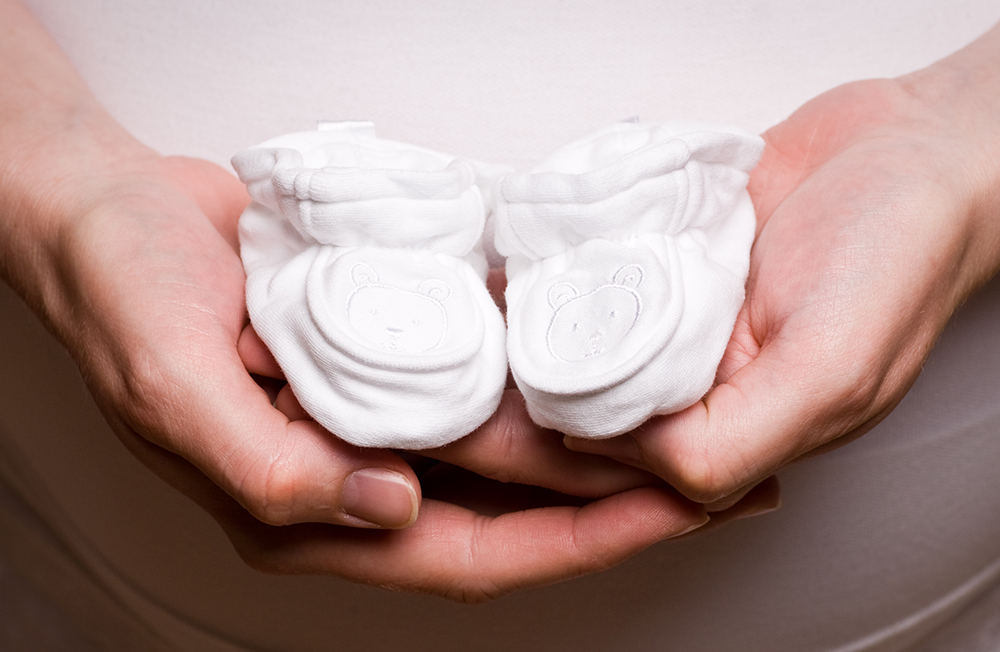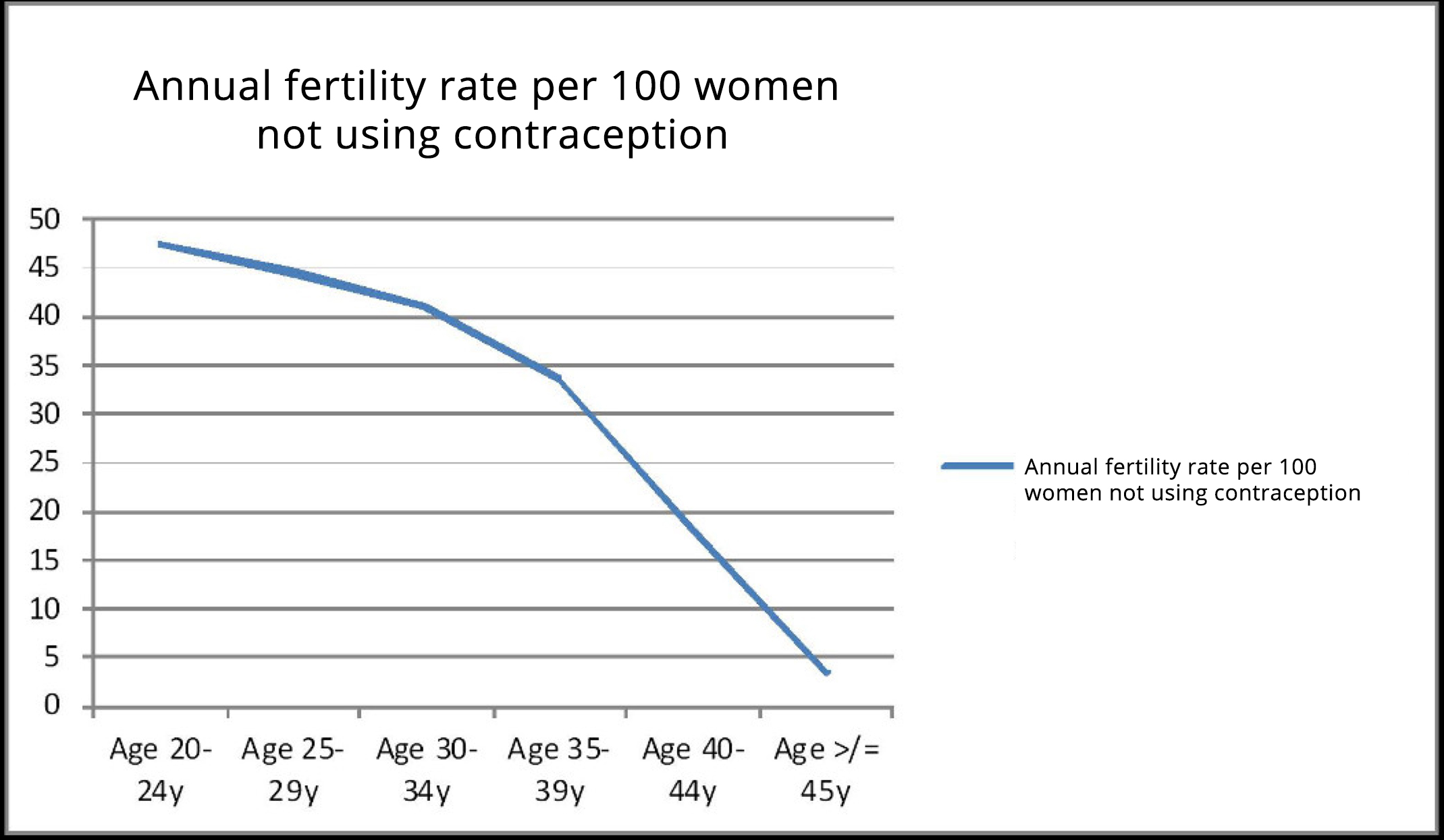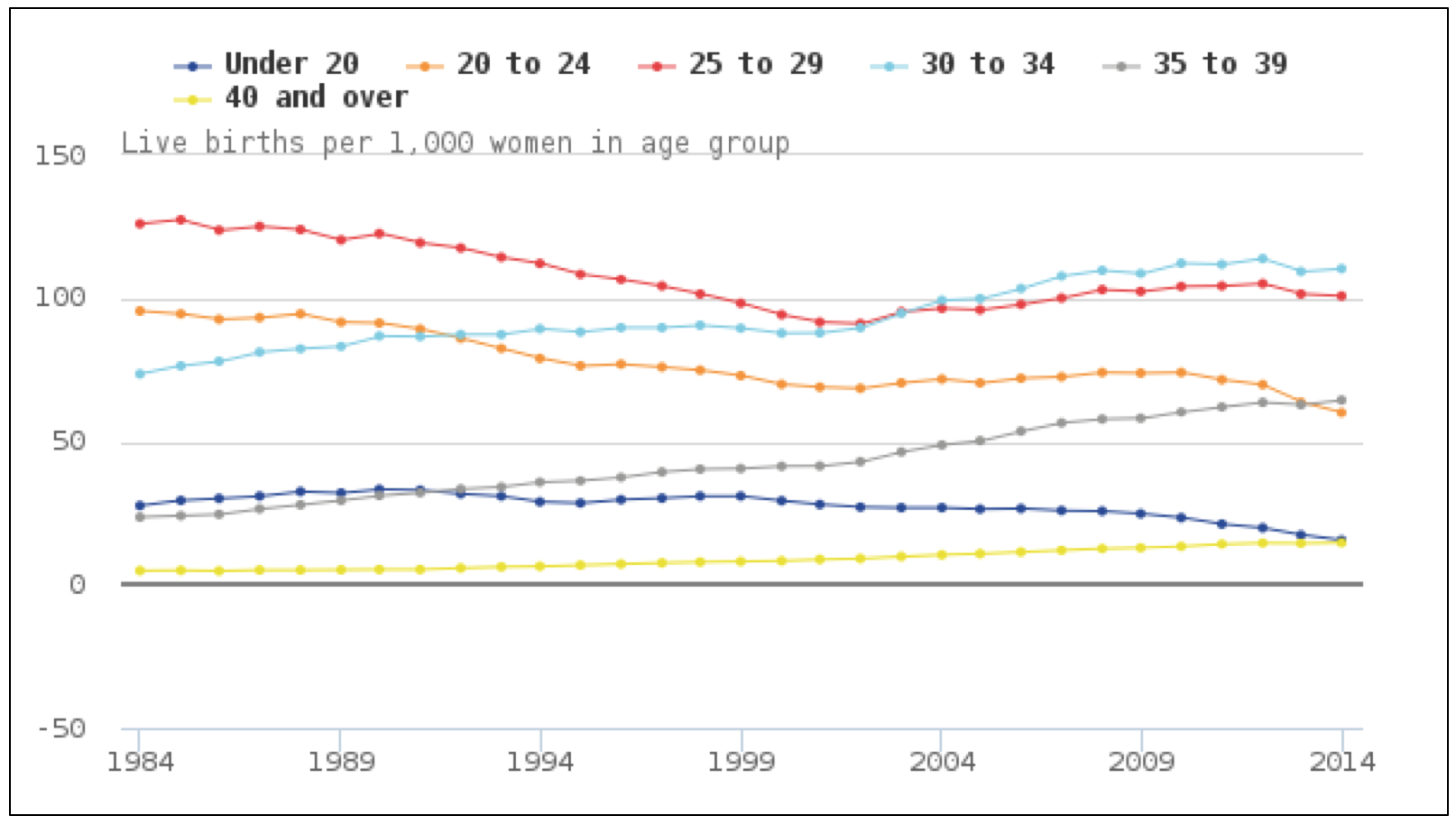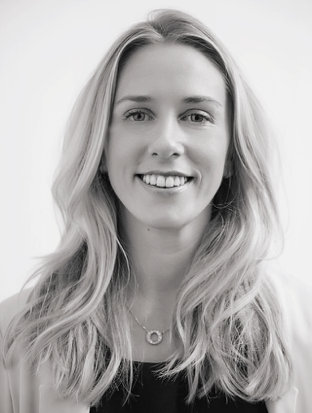
Finding the “right time” to start trying for a baby is a difficult decision. So many factors need to be considered. “Work’s going really well, now’s not a good time” and “We need to save some money first” are common phrases you often here.
Today’s women are increasingly leaving it later and later to start their family. Since 1975, the average age of first time mothers has slowly increased, with the latest average reported as 30.3 years in 2015. The fertility rate for women aged 40 and over rose above the rate for women aged under 20 for the first time since 1947.1
Women today are also achieving higher educational levels and securing good jobs that they may choose to prioritise over parenthood. Despite laws and policies protecting gender equality, many women report a lack of understanding towards motherhood in some male-dominated workspaces. Life is also expensive; with soaring house prices and childcare costs, it can seem too big a challenge to be both a mother and a wage earner. One in three men and one in five women aged 20-34 still live with their parents, and the average age to buy a first home is 35.
But whilst it’s tempting to wait until you are older, wiser and richer, what do your ovaries say?
Women are born with all the eggs they will ever have. Latest studies predict that around 2 million eggs exist before birth and this declines to around 300,000 by the time puberty comes knocking. A gradual decline continues to around 70,000 by age 30, and 18,000 by age 40. The chance of a natural conception in women under the age of 30 is approximately 20% with each cycle, but drops to 5% by the time they turn 40.2
How does this impact on fertility?
It can be a huge challenge for women to understand the mass of information online about fertility – the advice given is often unclear and contradicting. So let’s get some clear messages across based on the evidence out there:
1. Although it is possible to get pregnant naturally in your late 30s and 40s, data does appear to show that the rate of fertility success decreases more steeply after the age of 35:3

Adapted from Heffner 20043
It’s not all doom and gloom though. 82% of 35-39 year olds get pregnant naturally after the first year of trying. The National Office of Statistics reported that in 2014 the highest fertility rates were in fact in women aged 30-34 years.

Data from the National Office of Statistics: Births in England and Wales, 2015
Abortion statistics also show a sizeable proportional of older women are having terminations for “surprise” unwanted pregnancies.1
2. Think about how many children you want – the bigger the family you intend to have, the sooner you should start trying. Evidence (based on fertility data over 300 years) shows that the optimal age to start trying for a family is lower the larger the family size desired (with or without IVF).4
3. Assisted conception, including IVF, is an option for women who struggle to get pregnant naturally. But IVF success rates also decrease the older you are, and most areas restrict NHS funding for women over the age of 40. Other restrictions exist and vary depending on where you live – but these usually include either parent having a previous child, smoking and having a high BMI.
Success rates differ between each fertility clinic but a rough guide is below (taken from the Human Fertilisation and Embryology Authority).5
- 32.2% for women aged under 35
- 27.7% for women aged between 35–37
- 20.8% for women aged between 38–39
- 13.6% for women aged between 40–42
- 5.0% for women aged between 43–44
- 1.9% for women aged 45 and over
4. Pregnancy in older women carries more risks. The risk of miscarriage increases with age, from 10% in women under 30 to up to 50% in women over 40. As women age, the risk of developing health issues such as hypertension also increases and this can complicate a pregnancy. Older women are more likely to have a multiple pregnancy and this carries a higher risk. Pregnancy-related complications such as pre-eclampsia, prolonged labour and need for caesarean also increase. Furthermore, an older woman has a higher risk of having a baby with a congenital abnormality, such as Down’s syndrome.
So the take home message? Don’t start trying too late!
This article is for information only and should not be used for the diagnosis or treatment of medical conditions. myHealthSpecialist makes no representations as to the accuracy or completeness of any of the information in this article, or found by following any link from this article. Please consult a doctor or other healthcare professional for medical advice.

Dr Anna Cantlay, GP
Read Dr Anna Cantlay’s other articles:
Don’t be a FLUgitive
Herbs for menopause – does natural mean safe?
Should the NHS be “PrEPing” patients in the battle against HIV?
Is your job literally “suffocating” you?
Yoga: Mind, body and soul
Follow Dr Anna Cantlay on Instagram: doctoranna_gp